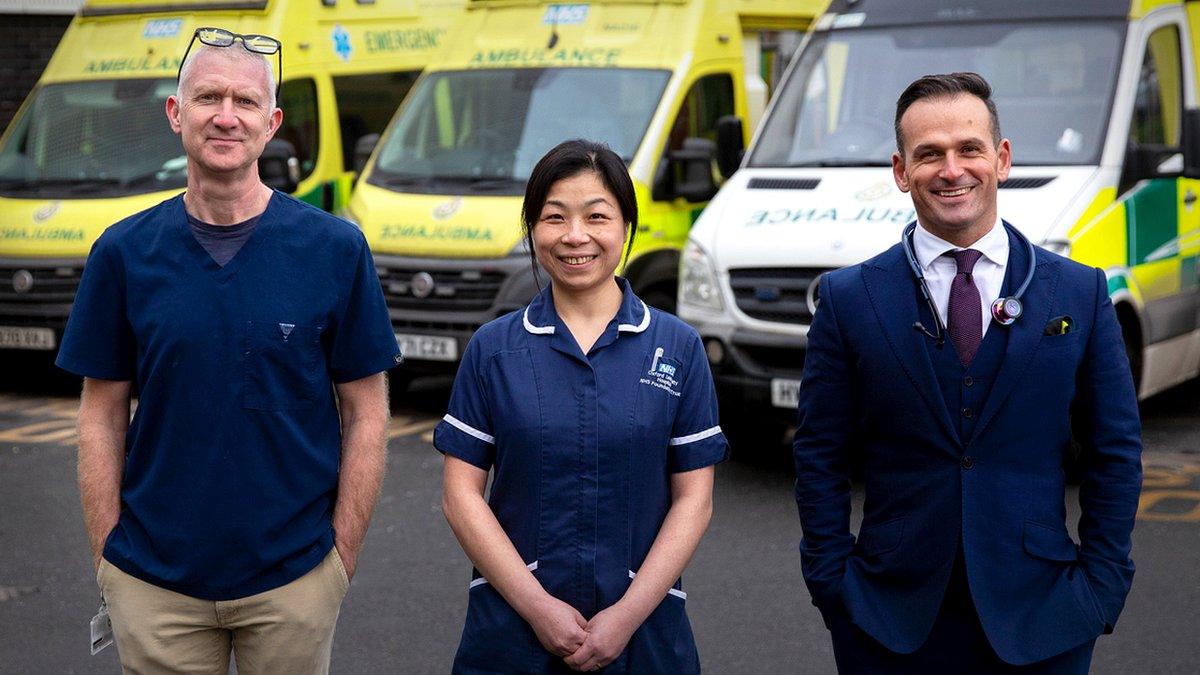How AI is transforming work for Bee Lady doctors
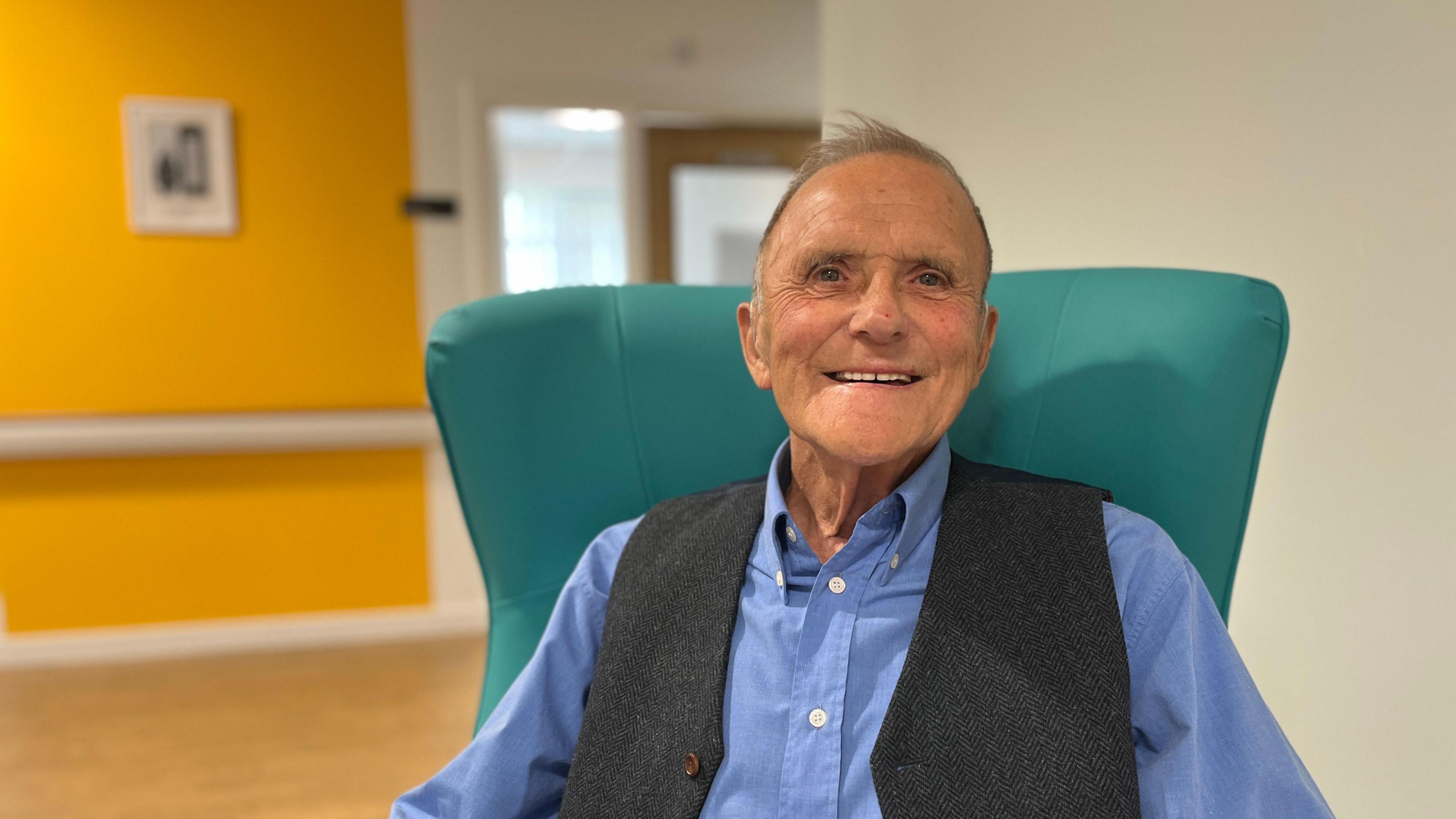
David says he has "no worries at all" about AI listening to his appointments
- Published
Doctors are using artificial intelligence to help them offer more personal care and reduce the risk of staff burnout.
GPs at Hull's Jean Bishop Centre are trialling a computer programme during consultations which makes notes for them, allowing them to concentrate fully on their patients.
The AI programme can also be used to draft referral letters and care summaries, slashing time spent on admin.
Dr Andy Noble, a frailty expert and GP at the centre, said: "I'm able to make a little more eye contact. I'm more relaxed in speaking to patients. [I hope] they feel that benefit as well."
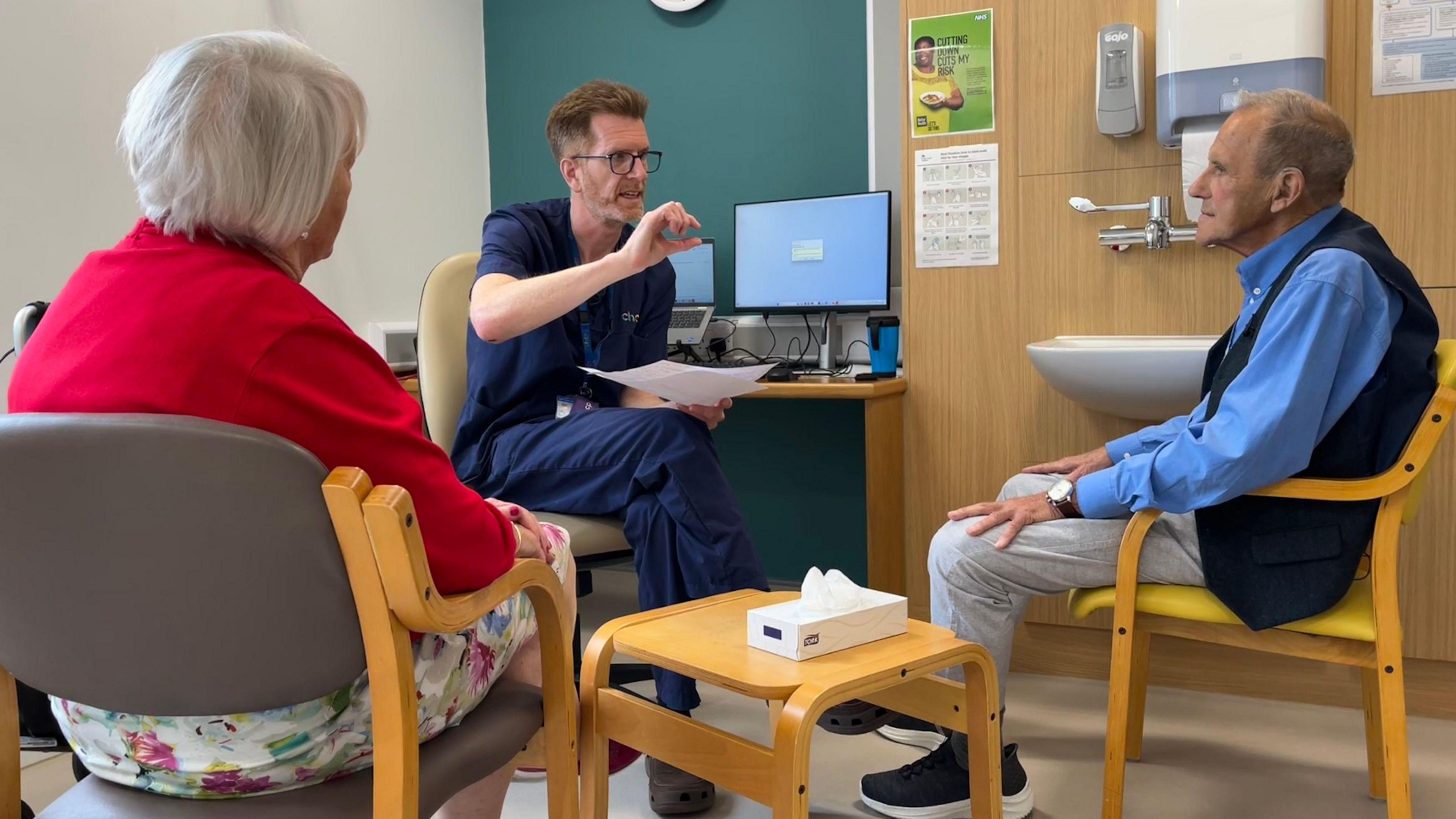
AI makes notes for Dr Andy Noble during his hour-long appointments
Named in honour of local fundraiser the Bee Lady, who died in 2021, Jean Bishop Integrated Care Centre brings together nurses, GPs, pharmacists, physiotherapists and social care staff under one roof.
Frail patients are invited to the centre for the whole day, and they receive lunch and a thorough health MoT with the aim of keeping them out of hospital, reducing their medication, and finding the root cause of their conditions.
David, 81, has been invited to spend the day at the centre in a bid to tackle his long list of medical problems.
Asked if he minded the computer listening to his private conversation with the doctor, he said: "I've got no worries at all."
He hopes having an easy-to-digest summary of his medical history written by AI will ensure under-pressure medical staff don't miss any of his conditions.
"It's got all of my records now. They can look back on it and pick up everything," he said.
David told Dr Noble about his recent three-week stay in hospital, when he thought "there was no way back" from his worsening condition.
He came close to tears as he recalled how worried his wife Marie was, and how relieved they were that he had been sent to the team at the care centre.
"They're all brilliant here. I cannot thank them enough. I wish I'd found it a year ago, I really do," he said.
Dr Noble, who has worked at the centre since it opened in 2018, said his hour-long consultations had been transformed during the past seven months by the AI programme, called Heidi Health.
The computer makes transcripts of his consultations and then turns them into notes for patient records.
"I used to make a lot of notes when I was talking to patients. It takes a bit of pressure off," he said.
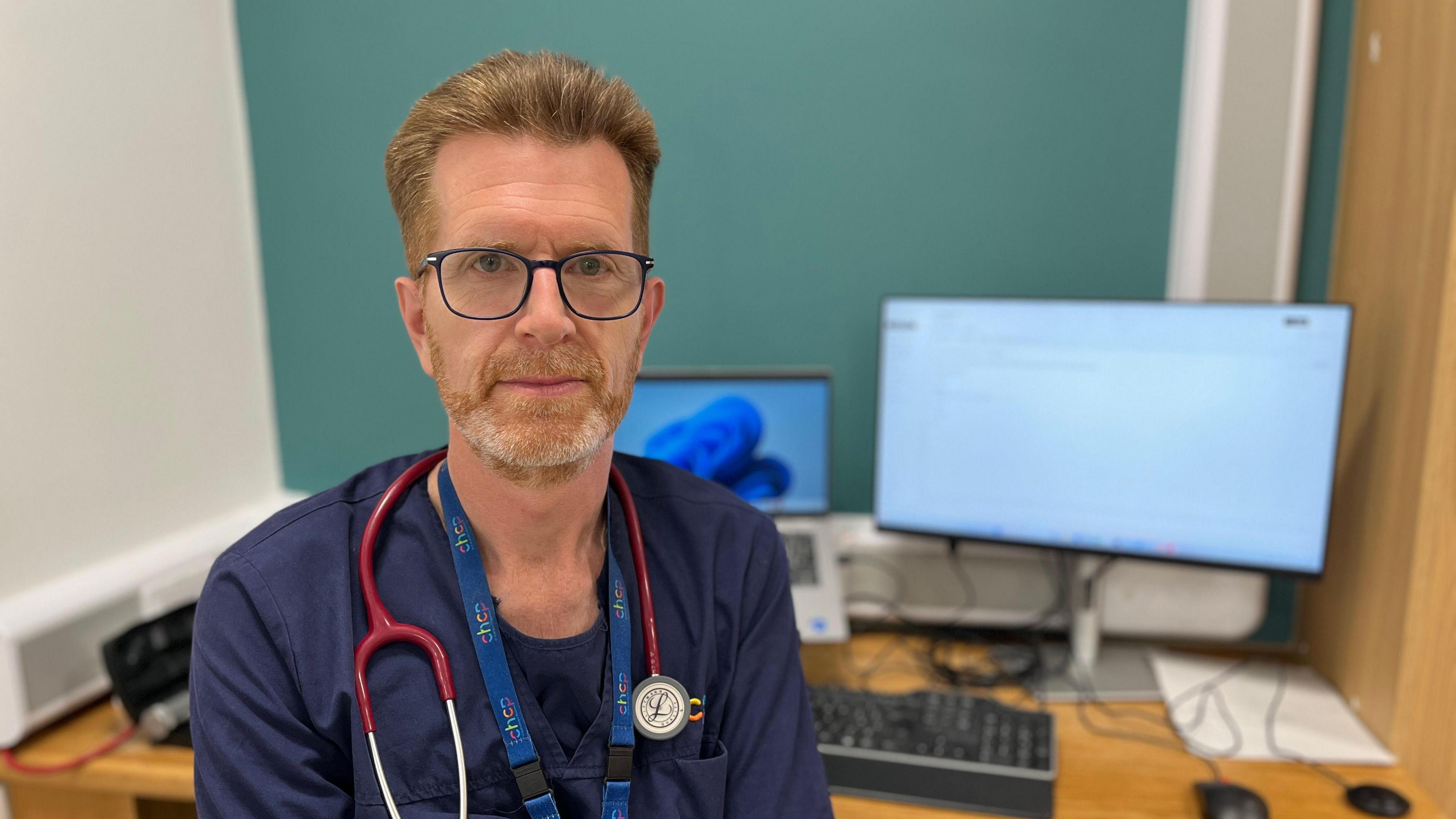
Dr Andy Noble says AI 'does the donkey work' of patient admin
At the end of each appointment, Dr Noble presses a button and, within a couple of minutes, the conversation is transformed into an easy-to-read summary of each individual health issue, and a list of current medications.
The programme can also draft referral letters, care summaries, to-do lists and discharge notes.
"It does all the donkey work, essentially, in the background for us," he said.
"I now will check through it, and we have to make a few alterations – maybe some things we need to add that weren't captured – but that is picking up all the bits of work I would generally have to do after I've seen a patient."
He said AI had cut time spent on admin by at least half, and that time would help staff keep up with the latest medical learning and allow them to take proper breaks to prevent burnout.
AI is being increasingly trialled in healthcare, including checking scans for diseases doctors were not looking for, spotting early-stage cancers or potentially fatal infections in blood tests, and reducing GPs' workload.
The British Medical Association said it welcomed advances in technology that benefitted patients or made the most of face-to-face doctor-patient interaction, but warned that it was not "a silver bullet".
Dr Katie Bramall-Stainer, chair of the BMA's general practitioners committee, said: "We recognise that AI has the potential to transform NHS care completely – but if not enacted safely, it could also cause considerable harm.
"AI is subject to bias and error, can potentially compromise patient privacy and is still very much a work-in-progress."
Back at Jean Bishop Centre, there is one specific hurdle doctors there are still trying to overcome.
"Heidi has had a few issues with the Hull accent," said Dr Noble.
"Hull Royal Infirmary" has been turned into "Hull oil and firmly" – although feedback is helping the AI programme to learn.
Related topics
Related stories
- Published14 January
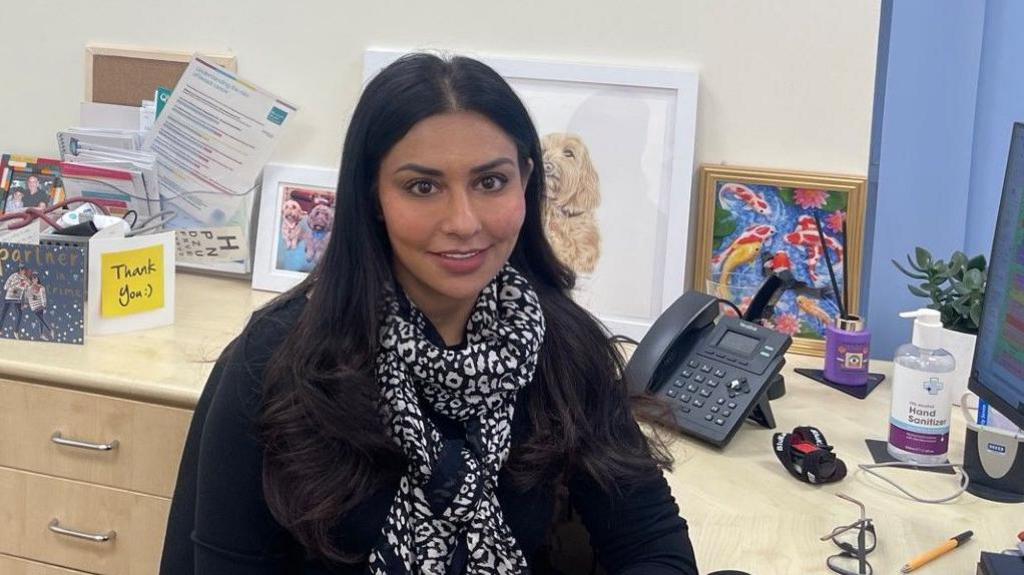
- Published21 February 2023
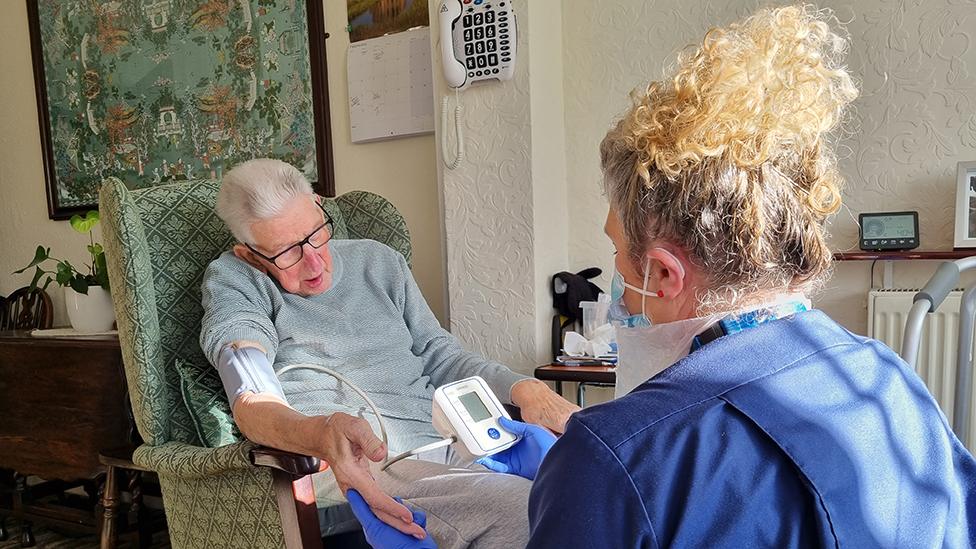
- Published16 January 2023
